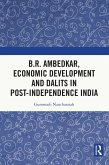Anti-Semitism in Germany reflects a historically unique opportunity to compare the attitudes of two population groups that shared a common history up to 1945 and then lived under differing political conditions until 1989. The authors find distinct generational patterns in the survival and development of anti-Semitic attitudes. In the Federal Republic hostility towards Jews was more manifest among those who had been socialized to it under the Weimar Republic and Third Reich but less prevalent in subsequent generations. In contrast the authors show younger East Germans as more susceptible to anti-Semitism. The economic and cultural crises of reunification underwrote the strident anti-Zionism of the former communist regime. The authors also explore the anti-Semitic component of the recent wave of xenophobic violence and the disturbing rise of neo-Nazi political activity.
This volume is especially noteworthy in its examination of a "secondary" anti-Semitism closely tied to the issue of coming to terms with the Nazi past. The motives behind persisting anti-Semitism can no longer be attributed to ethnic conflict, but go to the core discrepancy between wanting to forget and bein
Dieser Download kann aus rechtlichen Gründen nur mit Rechnungsadresse in A, B, BG, CY, CZ, D, DK, EW, E, FIN, F, GR, HR, H, IRL, I, LT, L, LR, M, NL, PL, P, R, S, SLO, SK ausgeliefert werden.









